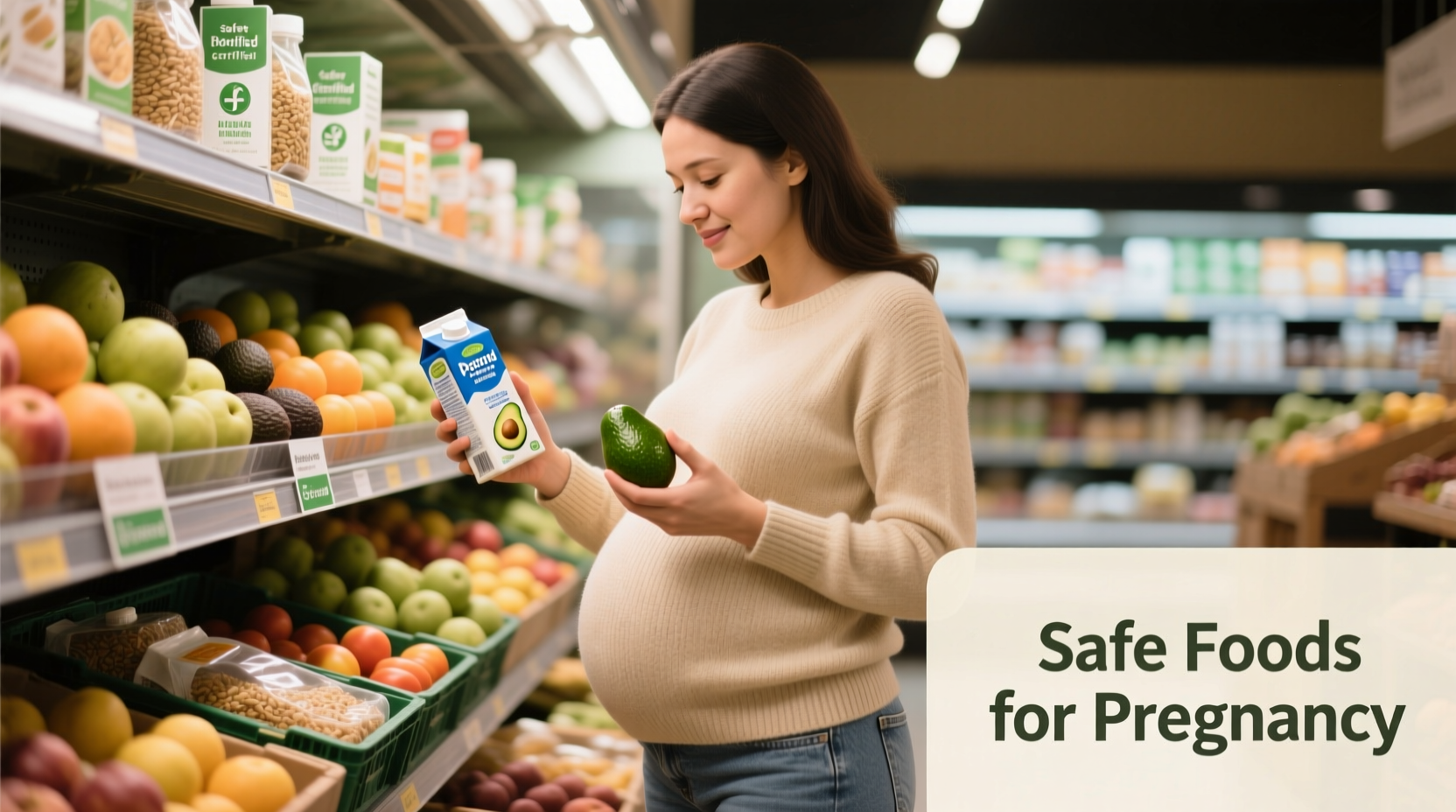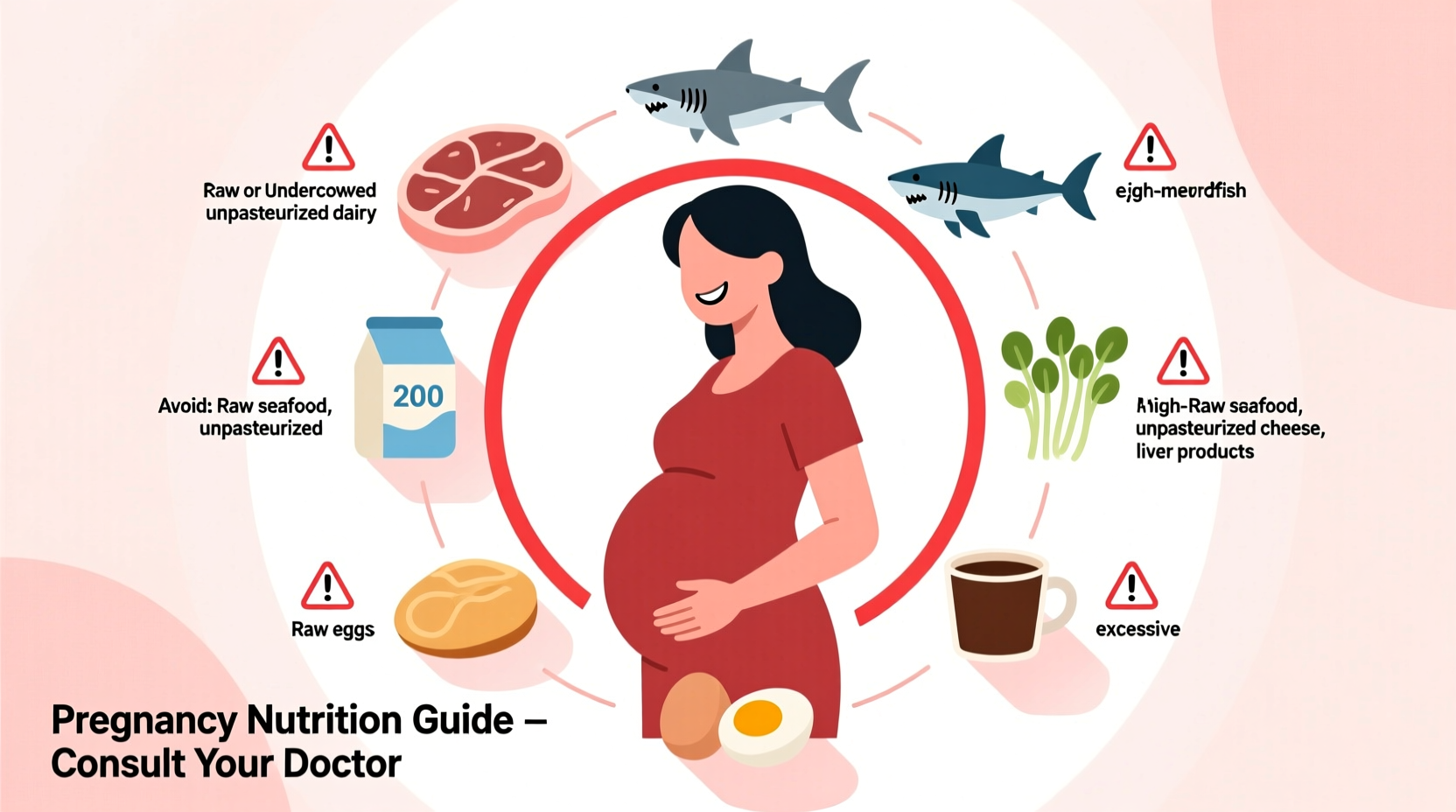During pregnancy, avoid raw or undercooked meats, unpasteurized dairy products, high-mercury fish like shark and swordfish, raw eggs, excessive caffeine (more than 200mg daily), and alcohol completely. These foods pose serious risks including foodborne illnesses, mercury exposure, and developmental issues for your baby.
Your Complete Guide to Foods to Avoid During Pregnancy
Expecting mothers need precise nutritional guidance to protect both maternal and fetal health. This evidence-based guide details exactly which foods to eliminate from your diet during pregnancy, why they're dangerous, and what safe alternatives you can enjoy instead. With proper knowledge, you can make informed choices that support a healthy pregnancy.
Why Food Safety Matters More During Pregnancy
Your immune system naturally changes during pregnancy to accommodate your growing baby. While essential for fetal development, this makes you more vulnerable to foodborne illnesses that could cause severe complications. According to the Centers for Disease Control and Prevention (CDC), pregnant women are 10 times more likely to contract listeriosis than the general population, with potentially devastating consequences including miscarriage, stillbirth, and preterm labor.
High-Risk Foods That Could Harm Your Pregnancy
Foods That Carry Bacterial Contamination Risks
Certain foods harbor bacteria that your changed immune system struggles to fight. The American College of Obstetricians and Gynecologists (ACOG) specifically warns against:
- Raw or undercooked meats and seafood - Sushi with raw fish, rare steak, and undercooked poultry can contain listeria, salmonella, or toxoplasma
- Unpasteurized dairy products - Soft cheeses like brie, feta, camembert, and blue-veined cheeses unless labeled "made with pasteurized milk"
- Raw or undercooked eggs - Found in homemade Caesar dressings, mayonnaise, cookie dough, and some desserts
- Refrigerated pâtés or meat spreads - These can contain listeria that grows even under refrigeration
| Foods to Avoid | Primary Risk | Safer Alternatives |
|---|---|---|
| Raw fish (sushi/sashimi) | Listeria, mercury | Cooked sushi rolls, canned salmon |
| Unpasteurized soft cheeses | Listeria | Pasteurized hard cheeses (cheddar, swiss) |
| Raw cookie dough | Salmonella | Egg-free cookie dough recipes |
| Refrigerated meat spreads | Listeria | Canned meat spreads, freshly cooked meats |
Fish with Dangerous Mercury Levels
The U.S. Food and Drug Administration (FDA) identifies certain fish as having dangerously high mercury levels that can impair fetal brain development. FDA guidelines specifically caution pregnant women to completely avoid:
- Shark
- Swordfish
- King mackerel
- Bigeye tuna
Limit consumption of albacore (white) tuna to no more than 4 ounces per week. Instead, choose low-mercury options like salmon, shrimp, pollock, light canned tuna, and catfish (up to 12 ounces weekly).
Beverages That Threaten Healthy Development
Your beverage choices significantly impact pregnancy outcomes. Research published in the American Journal of Obstetrics and Gynecology confirms that no amount of alcohol is considered safe during pregnancy. The American College of Obstetricians and Gynecologists states unequivocally that alcohol consumption during pregnancy can cause fetal alcohol spectrum disorders, which include physical, behavioral, and intellectual disabilities.
Regarding caffeine, limit intake to less than 200mg daily (about one 12-ounce cup of coffee). Higher consumption correlates with increased risk of miscarriage according to studies from the National Institutes of Health.
Practical Food Safety Strategies for Every Trimester
Your nutritional needs evolve throughout pregnancy, but certain food restrictions remain constant. During your first trimester when organ development occurs rapidly, avoiding listeria becomes critical. In the second and third trimesters, mercury exposure poses greater neurological risks as your baby's brain develops.
Implement these practical safety measures:
- Always check labels for "pasteurized" when purchasing dairy products
- Use a food thermometer to ensure meats reach safe internal temperatures
- Wash all fruits and vegetables thoroughly to remove potential toxoplasma
- When dining out, request dishes fully cooked and avoid salad bars with potentially contaminated foods
- Reheat deli meats until steaming hot to kill any potential listeria
Common Misconceptions About Pregnancy Nutrition
Many pregnancy food myths persist despite medical evidence. Contrary to popular belief:
- You don't need to "eat for two" - most women only require about 300 extra calories daily in the second and third trimesters
- Some herbal teas are unsafe during pregnancy - consult your healthcare provider before consuming
- "Natural" doesn't always mean safe - many natural supplements lack pregnancy safety data
The Academy of Nutrition and Dietetics emphasizes that individual nutritional needs vary based on pre-pregnancy weight, health conditions, and multiple gestation pregnancies. Always consult your healthcare provider for personalized advice.

Building a Safe and Nutritious Pregnancy Diet
While avoiding certain foods is crucial, focusing on what you can eat creates a positive nutritional framework. Incorporate these pregnancy superfoods:
- Fully cooked lean proteins like chicken, turkey, and low-mercury fish
- Pasteurized dairy products for calcium and protein
- Folate-rich foods like cooked leafy greens and fortified cereals
- Iron-rich foods including lean red meat (fully cooked) and legumes
- Whole grains for sustained energy and fiber
Remember that proper food handling matters as much as food selection. The CDC recommends following four key steps: clean, separate, cook, and chill to prevent foodborne illness during pregnancy.
Your Pregnancy Food Safety Checklist
Before consuming any food during pregnancy, ask yourself:
- Is this fully cooked to the recommended internal temperature?
- Is this product made with pasteurized ingredients?
- Has this been properly refrigerated and is it within its expiration date?
- Does this contain high levels of mercury or other contaminants?
- Have I washed fruits and vegetables thoroughly?
When in doubt about any food's safety during pregnancy, consult your healthcare provider or a registered dietitian specializing in prenatal nutrition. Your baby's health depends on the choices you make today.











 浙公网安备
33010002000092号
浙公网安备
33010002000092号 浙B2-20120091-4
浙B2-20120091-4